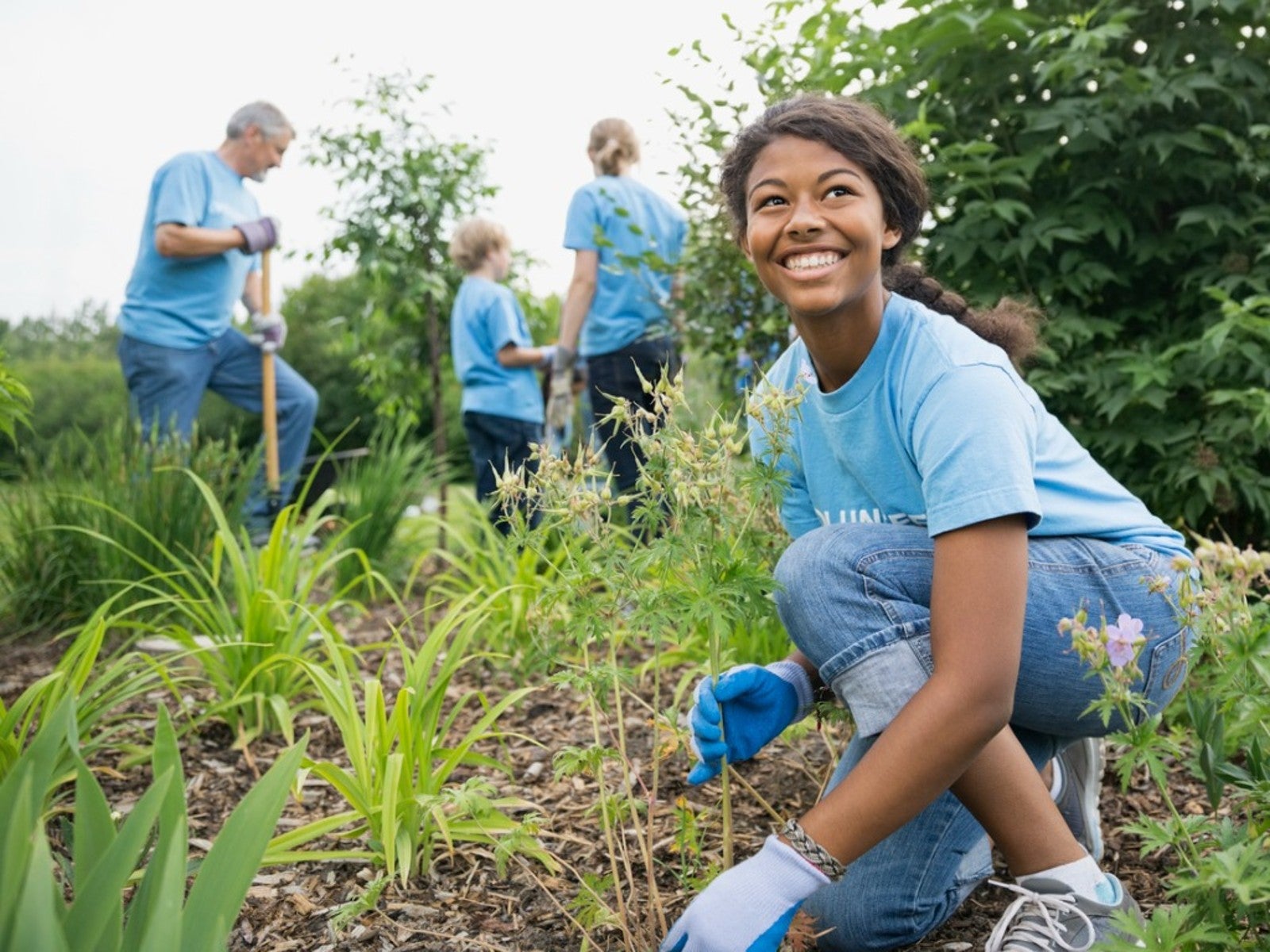How To Make A Community Garden Sustainable


Sign up for the Gardening Know How newsletter today and receive a free copy of our e-book "How to Grow Delicious Tomatoes".
You are now subscribed
Your newsletter sign-up was successful
Community gardens are shared spaces for neighbors to grow vegetables and other plants. There are ways everyone benefits from these spaces. One important benefit and goal of these gardens is to promote sustainable gardening. Sustainable community gardens beautify neighborhoods, support, wildlife, and benefit the health of participants.
How Are Community Gardens Sustainable?
The connection between community gardens and sustainability works both ways. While participants might actively work toward sustainable gardening practices, simply having community gardens leads directly and indirectly to greater sustainability.
Studies from Australia and the United Kingdom show that areas with community gardens are more sustainable overall. One of the environmental benefits is greater biodiversity in the neighborhood.
Community gardens also contribute to sustainability by changing the attitudes and perspectives of residents. Neighbors involved have a better understanding of where food comes from, which develops their appreciation for healthy lifestyles and sustainability.
Working in these gardens also helps people understand that they are not passive components of the environment, but rather active participants. They have a better appreciation for how they can take action to make positive changes. Participants take both the knowledge and the empowerment that comes with it back to their own lives to make more environmentally responsible choices.
How to Make a Community Garden Sustainable
Community garden sustainability is a natural part of the process to some degree. By taking an abandoned or even polluted space in a city and turning it into a thriving, diverse garden, community members automatically make the neighborhood more sustainable.
It’s important to take this further, though, and to actively engage in practices that are good for the health of the garden, community, and environment:
Sign up for the Gardening Know How newsletter today and receive a free copy of our e-book "How to Grow Delicious Tomatoes".
Make compost
Compost is one of the most sustainable of all gardening products. You can enrich the soil with compost while also recycling garden and kitchen waste. Not everyone has room in their own gardens to make compost, but a community garden is a great place for a big compost pile.
Test the soil
Local extension offices will test your soil and tell you if it needs any amendments or added nutrients. This can help you be more efficient and effective in creating soil that will give you thriving plants. Instead of just using general fertilizer, find out what the soil and plants need and be more strategic to avoid waste.
Avoid pesticides and herbicides
Organic gardening practices are most sustainable. This means hand pulling weeds and finding non-chemical ways to deal with pests, like companion planting or hand picking insects from plants.
Conserve water
Water is a precious resource in many communities. To grow plants more sustainably, you can save rainwater. Create rain barrels at downspouts to collect and use water on the plants. Watering in the evening and using drip irrigation also helps avoid wasting water. Use mulch to minimize evaporation and keep more moisture in the soil.
Plant native species
Although vegetables are likely to be the primary reason for a community garden, make room for native perennials too. These are plants native to your area that require fewer resources to grow. They will increase the biodiversity of the area, beautify the space, and support wildlife, including pollinators. Always avoid invasive species, which could harm wildlife and crowd out native plants.
Create roof gardens
Look for unique spaces in which to grow a community garden. Many rooftops are unused spaces with plenty of sunlight. It takes a little more investment to get started, but a green roof can lower energy use inside buildings.
A sustainable community garden is a productive and socially vibrant space. Any kind of garden in the community will provide benefits. But, if you can take steps to make it more sustainable, you will truly transform the space and educate others about how to take these practices into the rest of their lives.
Want to hear about community gardens that are making a difference right now? Go check out our Community Gardening for Everyone speaker series!

Mary Ellen Ellis has been gardening for over 20 years. With degrees in Chemistry and Biology, Mary Ellen's specialties are flowers, native plants, and herbs.